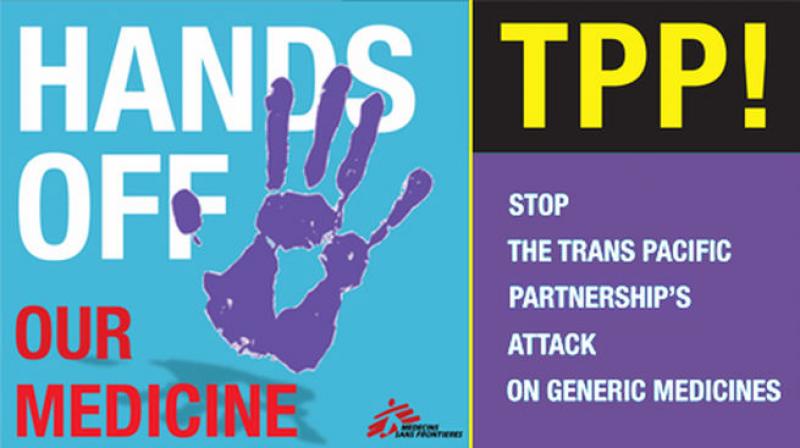
Every faith and moral tradition embraces the principle that no human being should suffer without access to the care they need. For that reason, the faith community’s position on the Trans-Pacific Partnership should be clear: it must be rejected.
In addition to the TPP’s likely harmful impact on workers and our environment, this trade agreement would seriously undermine access to lifesaving medicines. As readers of this blog already know, millions of people in TPP countries, including here in the U.S., already struggle to afford the cost of the medicines they need.
This is a morally indefensible situation, and the TPP would make it worse. The TPP aims to include 12 countries whose economies encompass nearly 40% of the world’s gross domestic product. Its terms extend the drug company monopolies that are the biggest cause for high medicine prices by allowing drug companies to “evergreen” their patent monopolies. Evergreening is accomplished by pushing minor revisions on older medicines, and blocking generic alternatives from being available. I wrote in more detail about the TPP and evergreening here.
One particularly concerning feature of the TPP is its treatment of biologic drugs, which are vitally important in the treatment of cancer and other life-threatening illnesses. The TPP aims to delay generic drug manufacturers from accessing information needed to gain permission to offer their products, a stalling tactic known as “data exclusivity.” This data exclusivity portion of the TPP could so severely restrict access to generic biologics that cancer patient activists call it the “Death Sentence Clause.”
(One global health analyst recently argued that the TPP is not likely to increase drug prices. Of course, that is surprising news to the pharmaceutical companies that spent millions of dollars lobbying for these patent-extending terms to be included in the agreement! That argument also misapplies the available evidence on past trade deals and does not consider the full terms of the TPP. A trio of professors from Yale, Columbia, and the London School of Economics quickly and thoroughly discredited the argument in the same publication, Foreign Affairs, where it originally appeared.)
In a feature that is frightening to environmental and health activists, not to mention supporters of democratic governance, the TPP also allows corporations to intervene in countries’ policy decisions, and even to file multi-billion dollar legal challenges when those policies interfere with corporate profits. These portions of the TPP are called Investor-State Dispute Systems. We will give the ISDS a closer look in a future blog post. But, for now, suffice it to say that this portion of the TPP could even jeopardize our own U.S. lawmakers’ ability to improve our flawed Medicare drug pricing system, locking in high prices.
The Nobel Prize-winning Doctors Without Borders has reviewed the TPP and concluded that, in terms of access to medicines, it would be the worst trade deal in history. (It is important not to adopt the phony branding of such deals as "free trade" agreements. Deals that enshrine government-issued patent monopolies are the very opposite of free trade--one economist estimates that drug patents are the equivalent of a 10,000% tariff.)
The faith community has recognized the same problems the public health community has. The Vatican has criticized the TPP on access to essential medicines grounds. In 2015, an interfaith coalition including the American Jewish World Service, the Islamic Institute of Boston, the Sisters of the Holy Cross, and Presbyterian Church USA, among dozens of others, wrote a very strong letter to Congress on the TPP.
“Trade must be mutually beneficial to all countries and peoples, particularly those living in marginalized communities, not just the wealthy,” they wrote. “Many of our partners throughout the world witness the impact of harmful trade agreements on the people we serve. We see children who can’t receive life-saving medicines because they are too costly . . .”
People of faith support access to essential medicines, the rights and dignity of workers, and democratic decision-making. These principles are vital to our faith traditions, and the TPP violates each of them.
Please share this blog post and check out what else PFAM has to offer! You can get on our mailing list here.
